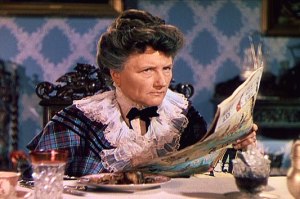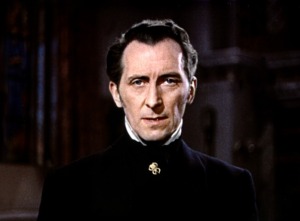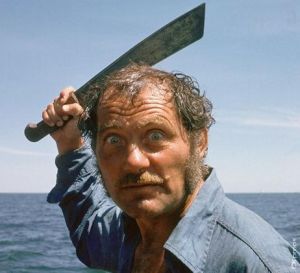
Though taller than some of her leading men, Cyd Charisse was a staple of movie musicals throughout the 1940s and 1950s as well as appeared alongside Gene Kelly and Fred Astaire.
Since my last 10 movie stars are all women, I open this final installment with a note about actresses. Now while actresses in Hollywood have always had less opportunity than men, ladies in the Golden Age of Hollywood didn’t have much better, especially with the morality clauses. Of course, a lot of actresses I’ve known during that period were in only a few known films and had less roles in movies I’ve never heard of as they aged. Yet, some who weren’t cast for their youth and beauty tended to be confined to character and supporting roles. So it’s no surprise that I didn’t compile as many. Yet, in this final edition here are 10 more. First, we have Margaret Hamilton famous for playing the Wicked Witch of the West but was actually a rather nice lady followed by Mildred Dunnock a schoolteacher who later played Mrs. Loman in Death of a Salesman. Second, there are versatile actresses Geraldine Fitzgerald and Ann Southern who’ve both had long careers as well as Nina Foch who played the Pharaoh’s daughter in The Ten Commandments (the one who found Moses). After them comes Dame Flora Robson though not pretty played roles ranging from maids, queens, and serial killers on stage and screen followed by Una O’Connor who mostly played maids. Then there’s wholesome cute girl Jean Crain whom studios wanted to play teenagers for years. Next is Cyd Charisse best known for her long marriage to Tony Martin as well as her roles in movie musicals during the 1940s and 1950s. And last but not least is the first icy Hitchcock blonde herself, Madeleine Carroll. So without further adieu, here are 10 Oscar less actresses for your reading pleasure in this final edition I bring to you.
191. Margaret Hamilton
![Wicked Witch of the West: [to Dorothy] "And as for you, my fine lady, it's true I can't attend to you here and now as I'd like; but just try to stay out of my way – just try! I'll get you, my pretty, and your little dog too!" Though Margaret Hamilton would traumatize generations of children as the Wicked Witch of the West, she was a sweet woman who frequently gave to charitable organizations, spoke for pet welfare, and dearly loved children.](https://historymaniacmegan.files.wordpress.com/2015/02/still-of-margaret-hamilton-in-the-wizard-of-oz-1939-large-picture.jpg?w=300&h=219)
Wicked Witch of the West: [to Dorothy] “And as for you, my fine lady, it’s true I can’t attend to you here and now as I’d like; but just try to stay out of my way – just try! I’ll get you, my pretty, and your little dog too!”
Though Margaret Hamilton would traumatize generations of children as the Wicked Witch of the West, she was a sweet woman who frequently gave to charitable organizations, spoke for pet welfare and public education, and dearly loved children.
Famous for: American character actress best known as the Wicked Witch of the West from The Wizard of Oz. Career spanned for nearly 50 years and usually playing spinsters, particularly of the New England variety. Notable roles are Madame Du Barry from Hat, Coat, and Glove, Lucy Gurget from The Farmer Takes a Wife, Martha Perkins from Way Down East, Agatha from These Three, Drugstore Lady from Nothing Sacred, Mrs. Harper from The Adventures of Tom Sawyer, Miss Gulch / The Wicked Witch of the West from The Wizard of Oz, Martha Steele from Babes in Arms, Mrs. Gideon from My Little Chickadee, Mrs. Jackson from The Invisible Woman, Norah from Twin Beds, Mrs. Larch from The Ox-Bow Incident, Myrtle Ferguson from Johnny Come Lately, Norah from State of the Union, Teacher from The Red Pony, Mrs. Theresa Appleby from Bungalow 13, Elaine Zacharides from 13 Ghosts, Mrs. Nicholson from Paradise Alley, Miss Kaller from The Anderson Tapes, Daphne Heap from Brewster McCloud, and Mae from Rosie!.
Nominated for: Hamilton was never nominated for an Oscar.
Most Crushing Loss: Not being nominated for Best Supporting Actress in 1939 for The Wizard of Oz. Man, she was one mean and green witch.
Reasons: Trust me, you don’t want to give a statuette to a woman best known for playing a notorious villain known to traumatize kids for generations. It’s kind of a shame since she was a very nice person who cared deeply about children and frequently gave to charitable organizations. And it didn’t help that many children believed she was mean in real life.
Trivia: During the 1930s, she never put herself under contract to any one studio and priced her services at $1,000 a week to support herself and her son. Garland visited her and looked after her son while she was recovering in the hospital after she suffered burns during her exit from Munchkinland filming. When she returned, she said, “I won’t sue, because I know how this business works, and I would never work again. I will return to work on one condition — no more fireworks!” A stand-in for her wasn’t so lucky. Son commented that she enjoyed saying, “I’ll get you, my pretty, and your little dog, too!”-that she sometimes used it in real life. Took roles in whatever medium she could get if she was free. Though she reprised her famous role on Sesame Street, her appearance hasn’t been aired since 1976 as a result of complaints from parents of terrified children. Yet, she also appeared on Mister Rogers’ Neighborhood where she explained that she wasn’t a bad witch. Appeared in PSAs for organizations promoting the welfare of pets. Was lifelong friends with Ray Bolger. Served on the Beverly Hills Board of Education between 1948 to 1951, and was a Sunday school teacher during the 1950s.Said The Wizard of Oz was her favorite book since she was 4.
192. Mildred Dunnock
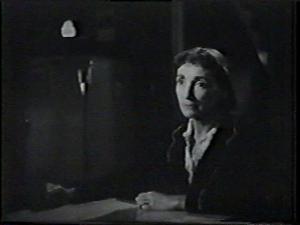
A school teacher who didn’t start acting until her 30s, Mildred Dunnock was known to play sweet motherly figures such as Linda Loman from Death of a Salesman. Yet, she’s the one in the wheelchair Richard Widmark pushes down the stairs in Kiss of Death.
Personal Life: (1901-1991) Born in Baltimore, Maryland. Attended Goucher College. Was a school teacher who didn’t start acting until her early 30s. Made her first film in 1944. Married to Keith Urmy for 58 years and had 2 children. Retired in 1987. Died of natural causes at Oak Bluffs, Massachusetts at 90.
Famous for: American character actress whose career spanned 57 years. Notable roles are Miss Ronberry from The Corn is Green, Mrs. Rizzo from Kiss of Death, Linda Loman from Death of a Salesman, Señora Espejo from Viva Zapata!, Mrs. Ruth Golding from The Jazz Singer, Martha Reno from Love Me Tender, Mrs. Wiggs from The Trouble with Harry, Aunt Rose Comfort from Baby Doll, Miss Elsie Thornton from Peyton Place, Sister Margharita (Mistress of Postulants) from The Nun’s Story, Mrs. Wandrous from Butterfield 8, Pilar from Behold a Pale Horse, Mrs. Sherman from The Spiral Staircase, and Nellie from The Pick-Up Artist.
Nominated for: Dunnock was nominated twice for Best Supporting Actress in 1951 for Death of a Salesman and 1956 for Baby Doll.
Most Crushing Loss: Not being nominated for Best Supporting Actress in 1947 for Kiss of Death. I mean she should get something after what Richard Widmark did to her in that movie.
Reasons: Dunnock was nominated in very bad years and was burned out by the competition.
Trivia: Was a founding member of the Actors Studio.
193. Geraldine Fitzgerald
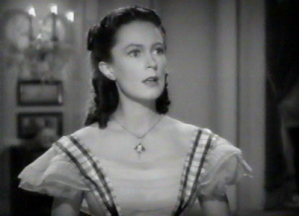
Though best known for playing the clueless Isabelle Linton from Wuthering Heights, Irish-American actress Geraldine Fitzgerald enjoyed a long acting career in film, theater, and television. Of course, we’re not sure if her son’s father was Orson Welles even though it’s rumored to be.
Personal Life: (1913-2005) Born in Greystones, County Wicklow in Ireland. Father was an attorney. Studied painting at the Dublin School of Art and the Polytechnic School of Art. Debuted on stage in 1932 and made her first film in 1934. Became a US citizen during WWII. Married twice and had 2 children. Married to second husband Stuart Scheftel for 48 years. Retired in 1991. Died in New York City of Alzheimer’s Disease at 91.
Famous for: Irish American actress whose career spanned 59 years. Notable roles are
Maggie Tulliver from The Mill of the Floss, Isabella from Wuthering Heights, Ann King from Dark Victory, Marthe de Brancovis from Watch on the Rhine, Edith Bolling Galt from Wilson,
Ellen Rogers / Elaine Duprez from O. S. S., Gladys Halvorsen from Nobody Lives Forever, Elizabeth Grahame from The Obsessed, Marilyn Birchfield from The Pawnbroker, Rev. Wood from Rachel, Rachel, Mrs. Jackson from The Last American Hero, Jessie from Harry and Tonto, Grandma Carr from The Mango Tree, Maud Kennaway from Diary of the Dead, Martha Bach from Arthur, and Mrs. Monahan from Easy Money.
Nominated for: Fitzgerald was nominated for Best Supporting Actress in 1939 for Wuthering Heights.
Most Crushing Loss: Not receiving an honorary Oscar for her long and varied career.
Reasons: Perhaps it’s due to that we’re not sure who Michael Lindsay-Hogg’s father who’s said to resemble Orson Welles. Also was burned by the competition in 1939.
Trivia: Second husband was grandson of Isidor Straus who died on the Titanic. Was one of the first women to receive a Tony nomination for directing. Spent time as a cabaret singer in the 1970s. Mother of Let It Be director Michael Lindsay-Hogg but we’re not sure whether his father was her first husband or Orson Welles.
194. Nina Foch

Though most famous as Moses’ adoptive mother in The Ten Commandments, Dutch born Nina Foch often played aloof, and often foreign women of sophistication. She was also blonde by the way and started in horror movies.
Personal Life: (1924-2008) Born Nina Consuelo Maud Fock in Leiden, Netherlands. Mother was an American actress and singer while father was a Dutch classical music conductor. Went with her mother to the US as a toddler after her parents divorced. Made her first film in 1943. Married 3 times and had a son to second husband Dennis de Brito. Lived at Beverly Hills for over 40 years. Died of complications from the blood disorder myelodysplasia (or kidney disease) at 84.
Famous for: Dutch-born American actress and leading lady in films from the 1940s to the 1950s. Played cool, aloof, and often foreign women of sophistication. Appeared in over 80 films and hundreds of TV shows. Notable roles are Nicki Saunders from The Return of the Vampire, Lois Garland from Shadows in the Night, Celeste from Cry of the Werewolf, Frieda Brenner from Strange Affair, Constantia from A Song to Remember, Milo Roberts from An American in Paris, Marie Antoinette from Scaramouche, Elena Cantu from Sombrero, Erica Martin from Executive Suite, Bithiah from The Ten Commandments, and Helena Glabrus from Spartacus.
Nominated for: Foch was nominated for Best Supporting Actress in 1954 for Executive Suite.
Most Crushing Loss: Not being nominated for Best Supporting Actress in 1960 for Spartacus. Yes, she didn’t have enough screen time but her portrayal of a Roman aristocrat was one of the most historically accurate in movie history.
Reasons: Probably had to do with the fact she was in a lot of horror movies early in her career. Also burned by the competition when she was nominated. I mean it should’ve been clear that Eva Marie Saint was going to win.
Trivia: Taught at the University of Southern California’s School of Cinematic Arts as well as spent time as an acting coach. Last name “Foch” rhymes with “Gosh” (I can see where mispronunciations can get out of hand).
195. Cyd Charisse

Born Tula Ellice Finklea, Cyd Charisse adopted her stage name by using an alternative spelling of her brother’s nickname for her which was a mispronunciation of “Sis” and the surname of her first husband Nico. Also known for her long legs.
Personal Life: (1922-2008) Born Tula Ellice Finklea in Amarillo, Texas. Father was a jeweler. Took dancing lessons as a child to overcome a bout of polio. Auditioned and danced for the Ballet Russe de Monte Carlo. Went to Hollywood after the company broke up in WWII. Made her first film in 1943. Married twice and had a son to each husband. Married to second husband Tony Martin for 60 years. Retired in 2007. Died of a heart attack at 86.
Famous for: American actress and singer whose abilities were featured in 1940s and 1950s musicals and transitioned to straight acting in the 1950s. Notable roles are Lily from Something to Shout About, Deborah Andrews from The Harvey Girls, Ballerina from The Ziegfeld Follies, Conchita from Fiesta, Rosa Senta from East Side, West Side, Dancer from Singin’ in the Rain, Gabrielle Gerard from The Band Wagon, Fiona Campbell from Brigadoon, Jackie Leighton from It’s Always Fair Weather, Maria Corvier from Meet Me in Las Vegas, Ninotchka Yoschenko from Silk Stockings, Charlotte King from Twilight of the Gods, and Sarita from The Silencers.
Nominated for: Charisse was never nominated for an Oscar.
Most Crushing Loss: Not receiving an honorary Oscar for her career. Seriously, she’s one of the best known dancers in 1950s musicals. Not to mention, she had to make herself look shorter than some of her co-stars like Gene Kelly and Fred Astaire which was no easy task.
Reasons: Charisse is best known for her dancing in musicals and her long marriage to Tony Martin but not much else. And basically only acted sporadically after the 1950s.
Trivia: Was listed under The Guinness Book of World Records for “Most Valuable Legs” because it’s said MGM reportedly insured for $5 million, though she claimed this was false. Wrote a joint memoir with second husband Tony Martin. Stage name originated from her brother’s nickname for her, “Sid” which was a mispronunciation of “Sis” and the last name of her first husband Nico Charisse. Awarded the National Medal of the Arts and Humanities in 2006. Daughter-in-law died in the American Airlines Flight 191 tragedy on May 25, 1979. Produced an exercise video targeted to senior citizens.
196. Una O’Connor

Born in a Catholic nationalist family in Northern Ireland, Una O’Connor would have an extensive career as a character actress mainly playing comical wives, housekeepers, and servants, especially in 1930s horror movies.
Personal Life: (1880-1959) Born Agnes Teresa McGlade in Belfast, Ireland to a Catholic Nationalist family. Changed her name when she began acting at Dublin’s Abbey Theatre. Made her first film in 1930. Never married or had children. Retired in 1957. Died of a heart attack at 78.
Famous for: Irish character actress known for playing comical wives, housekeepers, and servants. Notable roles are Ellen Bridges from Cavalcade, Jenny Hall from The Invisible Man, Wilson from The Barretts of Wimpole Street, Mrs. Gummidge from David Copperfield, Mrs. McPhillip from The Informer, Minnie from Bride of Frankenstein, Mary from Little Lord Fauntleroy, Bess from The Adventures of Robin Hood, Miss Latham from The Sea Hawk, Mrs. Mulcahey from The Strawberry Blonde, Marie from Lillian Russell, Tobacconist from Random Harvest, Norah from Christmas in Connecticut, Sarah Leek from Holy Matrimony, Mrs. Umney from The Canterville Ghost, Mrs. Breen from The Bells of St. Mary’s, Mrs. Foreman from Of Human Bondage, Duenna from The Adventures of Don Juan, and Janet from Witness for the Prosecution.
Nominated for: O’Connor was never nominated for an Oscar.
Most Crushing Loss: Not being nominated for Best Supporting Actress in 1957 for Witness for the Prosecution.
Reasons: She was basically typecast as the female comic relief. Also known to appear in a lot of horror movies and came from a Catholic nationalist family from Northern Ireland.
Trivia: Would not work on any radio program sponsored by a company that distributed or manufactured alcohol in any form.
197. Dame Flora Robson

Dame Flora Robson may not have had the looks of a leading lady, yet she played a wide range of roles on stage and screen from queens to killers. She also played Queen Elizabeth I in 2 movies.
Personal Life: (1902-1984) Born in South Shields, Durham in England. Came from a family of engineers and her father was a ship’s engineer who noticed her talent at 5. Grew up in London and attended the Royal Academy of Dramatic Art. Made her stage debut at 19 but found it difficult to get parts because she lacked the conventional looks (she had a long face, big nose, and wide mouth). Made her first film in 1931. Private life mostly focused on her sisters so she never married or had children. Retired in 1981. Possibly died of cancer at 82.
Famous for: British actress and star of stage and cinema particularly renowned for her performances in plays demanding dramatic and emotional intensity. Range extended from queens to murderesses. Notable roles are Empress Elisabeth from The Rise of Catherine the Great, Livia from I, Claudius, Queen Elizabeth I of England from Fire Over England and The Sea Hawk, Ellen from Wuthering Heights, Angelique Buiton from Saratoga Trunk, Ftatateeta from Caesar and Cleopatra, Sister Philippa from Black Narcissus, Countess Clara Platen from Saraband, Nurse from Romeo and Juliet, Dowager Empress Tzu-Hsi from 55 Days at Peking, Miss Milchrest from Murder at the Gallop, Mrs. Cassidy from Young Cassidy, Queen of Hearts from Alice’s Adventures in Wonderland, and A Stygian Witch from Clash of the Titans.
Nominated for: Robson was nominated for Best Supporting Actress in 1946 for Saratoga Trunk.
Most Crushing Loss: Not being nominated for any roles in her better known films most notably for Best Supporting Actress in 1947 for Black Narcissus.
Reasons: Robson was better known as a British actress on the stage than in Hollywood films. Also, Saratoga Trunk wasn’t a good movie according to critics. Not to mention being burned by the competition.
Trivia: Was of Scottish descent. Received an honorary doctorate from Durham University. Became a dame in 1960.
198. Ann Sothern

Ann Southern was an actress of many talents who performed on radio, stage, and screen for decades as well as started a variety of businesses she managed. She also survived hepatitis and a back injury in the1970s as well as lived to 92.
Personal Life: (1909-2001) Born Harriet Arlene Lake in Valley City, North Dakota. Mother was a concert singer and later vocal coach for Warner Bros. while father worked in importing and exporting. Grew up in Minneapolis, Minnesota. At 4, her parents separated and would divorce in 1927. Started taking piano lessons at 5 and accompanied her mother in concert tours as long as school permitted it. Began voice lessons at 14. Attended the University of Washington but dropped out after a year and soon joined her mother where she won a role in a Warner Bros. revue. Made her first film in 1927. Married twice and had a daughter to second husband Robert Sterling. Contracted infections hepatitis after getting impure serum from England in the late 1940s which confined her to a bed. In 1974, she was injured in Jacksonville, Florida when a fake tree fell on her back which left her with a fractured lumbar vertebrae and damaged nerves in her legs. She was then subject to multiple hospitalizations, weight gain, back braces, depression, physical pain, and had to walk with a cane for the rest of her life. Retired in 1987 and moved to Ketchum, where she lived for the rest of her life. Died of heart failure at 92.
Famous for: American actress whose career spanned 6 decades starting from bit parts to starring roles. Worked on stage, radio, film, and television. Notable roles are Maisie Ravier from The Maisie series, Flo Adams from Brother Orchid, Joyce Harmon from Words and Music, Rita Phipps from A Letter to Three Wives, Crystal Carpenter from The Blue Gardenia, Sue Ellen Gamadge from The Best Man, Sade from Lady in a Cage, Mrs. Grace Argona from Sylvia, and Tisha Doughty from The Whales of August.
Nominated for: Sothern was nominated for Best Supporting Actress in 1987 for The Whales of August.
Most Crushing Loss: Not being nominated for Best Supporting Actress in 1949 for A Letter to Three Wives.
Reasons: Sothern was just burned by the competition during her nomination. Also, she only acted sporadically in her later years.
Trivia: Maternal grandfather was Danish violinist Hans Nielsen and paternal grandfather was Quaker engineer and naval architect Simon Lake. Won a state sponsored contest for student musical composer 3 years in a row in high school. Was a classmate of Eddie Albert in high school and graduated in the same class with him. Converted to Roman Catholicism in 1952 and credited her faith with helping her get over her health issues. Had her own TV show. Opened the Ann Sothern Sewing Center in Sun Valley, Idaho which sold fabric, patterns and sewing machines in the 1950s. Had a cattle ranch in Idaho named the A Bar S Cattle Company. Owned Vincent Productions, Inc. as well as nightclubs in Las Vegas and Chicago. Also had her own music company called A Bar S Music Company and released albums. Mother of Tisha Sterling.
199. Jeanne Crain

While Jean Crain striven to be a serious actress on film, the studios always wanted her to play cute girls. For instance, despite thinking that Pinky would lead to better roles, 20th Century Fox cast her as a 13 year old girl despite that she was 25, married, and a mom.
Personal Life: (1925-2003) Born in Barstow, California and grew up in Los Angeles. Father was a school teacher. Was given a screen test opposite Orson Welles while in high school but didn’t get the part. Made her first film at 18 in 1943. Married to Paul Brinkman for 57 years (though they were separated at the time of his death) and had 7 children. Retired in 1975. Died of a heart attack at 78.
Famous for: American actress whose career spanned for 38 years. Worked from bit parts to starring roles. Notable roles are Margy Frake from State Fair, Ruth Berent from Leave Her to Heaven, Marjorie ‘Margie’ MacDuff from Margie, Julia Rogers from Centennial Summer, Deborah Bishop from A Letter to Three Wives, Patricia ‘Pinky’ Johnson from Pinky, Ann Gilbreth from Cheaper by the Dozen, Deborah Higgins from People Will Talk, Deborah Young from O. Henry’s Full House, Ruth Stanton Bowman from Dangerous Crossing, Connie Jones/Mitzi Jones from Gentlemen Marry Brunettes, Dora Temple from The Fastest Gun Alive, Diane Blane from The Tattered Dress, Letty Page from The Joker Is Wild, Laura Riley from Guns in the Timberland, Tenet/Nefertiti from Nefertiti, Queen of the Nile, Peggy Shannon from Madison Avenue, and Claudia Procula.
Nominated for: Crain was nominated for Best Actress in 1949 for Pinky.
Most Crushing Loss: Not being nominated for Best Supporting Actress in 1945 for Leave Her to Heaven. As Gene Tierney’s adoptive sister, she manages to hide a large amount of angst underneath that veneer of smiles and wholesomeness.
Reasons: Crain was more or less burned by the competition. Also, her character was supposed to be black passing for white, which should’ve went to Lena Horne anyway. Not to mention, while she hoped her role in Pinky would give her more serious parts, 20th Century Fox had other ideas like casting her as a 13 year old despite being 25, married, and a mother. Being cast as cute girls would get her passed over for more serious roles she should’ve played.
Trivia: Also noted for her ice skating. Miss Pan Pacific at the Pan-Pacific Auditorium in Los Angeles while in high school. In the late 1940s and early 1950s, was nicknamed ‘Hollywood’s Number One party girl’, and she was quoted saying that she was invited to at least 200 parties a year. Was earning $3,500 a week in the 1950s as well as her own dress line during the 1970s.
200. Madeleine Carroll
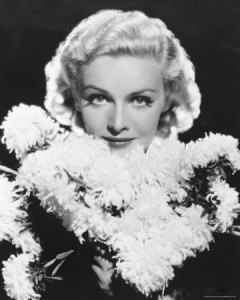
Madeleine Carroll would make movie history with her appearance in The 39 Steps as Alfred Hitchcock’s first icy blonde that would appear in many of his later films. Yet, her service during WWII were just as remarkable as well.
Personal Life: (1906-1987) Born Edith Madeleine Carroll in West Bromwich, Staffordshire in England. Mother was a French immigrant while father was an Irish professor of languages. Attended and graduated from the University of Birmingham and taught an all girls’ boarding school. Made her first film in 1928. Married 4 times with second husband being Sterling Hayden. Had a daughter with fourth husband Andrew Heiskell. Became a US citizen in 1944. Moved to Paris in 1951 and would later move to Spain. Retired in 1955. Died in Marabella, Spain from pancreatic cancer at 81.
Famous for: British American actress who was popular in both the 1930s and 1940s. At the peak of her success she was the highest paid actress in the world, earning a then staggering $250,000 in 1938. Notable roles are Diana Cheswick from The Guns of Loos, Lucille de Choisigne from Madame Guillotine, Queen Caroline Matilde of Denmark from Loves of a Dictator, Pamela from The 39 Steps, Elsa Carrington from Secret Agent, Judy Perrie from The General Died at Dawn, Linda Stewart from Safari, Charlotte Dunterry from Virginia, Carol Delbridge from Bahama Passage, Karen Bentley from My Favorite Blonde, and Mrs. Erlynne from The Fan.
Nominated for: Carroll was never nominated for an Oscar.
Most Crushing Loss: Not receiving an honorary Oscar for her career and her distinction as the prototype for the icy Hitchcock blonde. Also, not receiving the Jean Hersholt Humanitarian Award for her tireless efforts during and after WWII.
Reasons: Well, for one, there weren’t as many slots for Academy Award nominees as there are now in the 1930s (especially in the early years). Also, took an acting hiatus in WWII after her sister was killed in a German air raid during the Blitz and would be involved in the plight of European children some time afterwards.
Trivia: Was the first Hitchcock blonde. Was a Red Cross (and later US Army Air Corps) nurse during WWII after her sister was killed in the Blitz. Donated her chateau outside Paris to more than 150 orphans and arranged groups in California to knit for them. Awarded the Legion d’Honneur for her efforts by France as well as the American Medal of Freedom. Dwight D. Eisenhower said that of all the movie stars he met in Europe during the war, he was the most impressed with her and Herbert Marshall. Conducted a radio program fostering French-American friendship and helped in the rehabilitation of concentration camp victims after WWII. Formed a production company with her third husband which made several 2 reel documentaries with one strongly shown in Canada focusing on the devastation of children’s lives in WWII Europe which became a prime source of funds of for the manufacture of artificial limbs for wounded children. First British beauty to be offered a major American film contract. Fourth husband was publisher of Life Magazine.











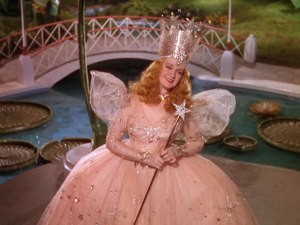












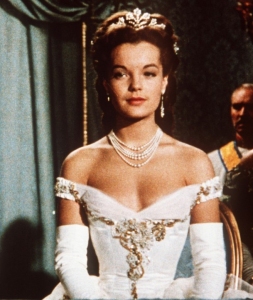













































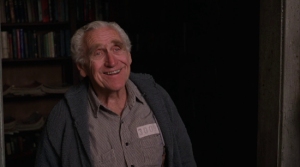



![Mrs. Danvers: " [to the 2nd Mrs. de Winter] Why don't you go? Why don't you leave Manderley? He doesn't need you. He's got his memories. He doesn't love you. He wants to be alone again with her. You've nothing to stay for. You've nothing to live for really, have you? Look down there. It's easy, isn't it? Why don't you? Why don't you? Go on. Go on. Don't be afraid!" Sure Dame Judith Anderson may not have looks of a leading lady, yet she was in a lot of highly acclaimed films that have become classics. By the way, for those watching The Ten Comandments, this Holy Saturday, she's the servant of the Princess who found baby Moses in the bull rushes.](https://historymaniacmegan.files.wordpress.com/2015/02/rebecca_cc_s27.jpg?w=300&h=225)
